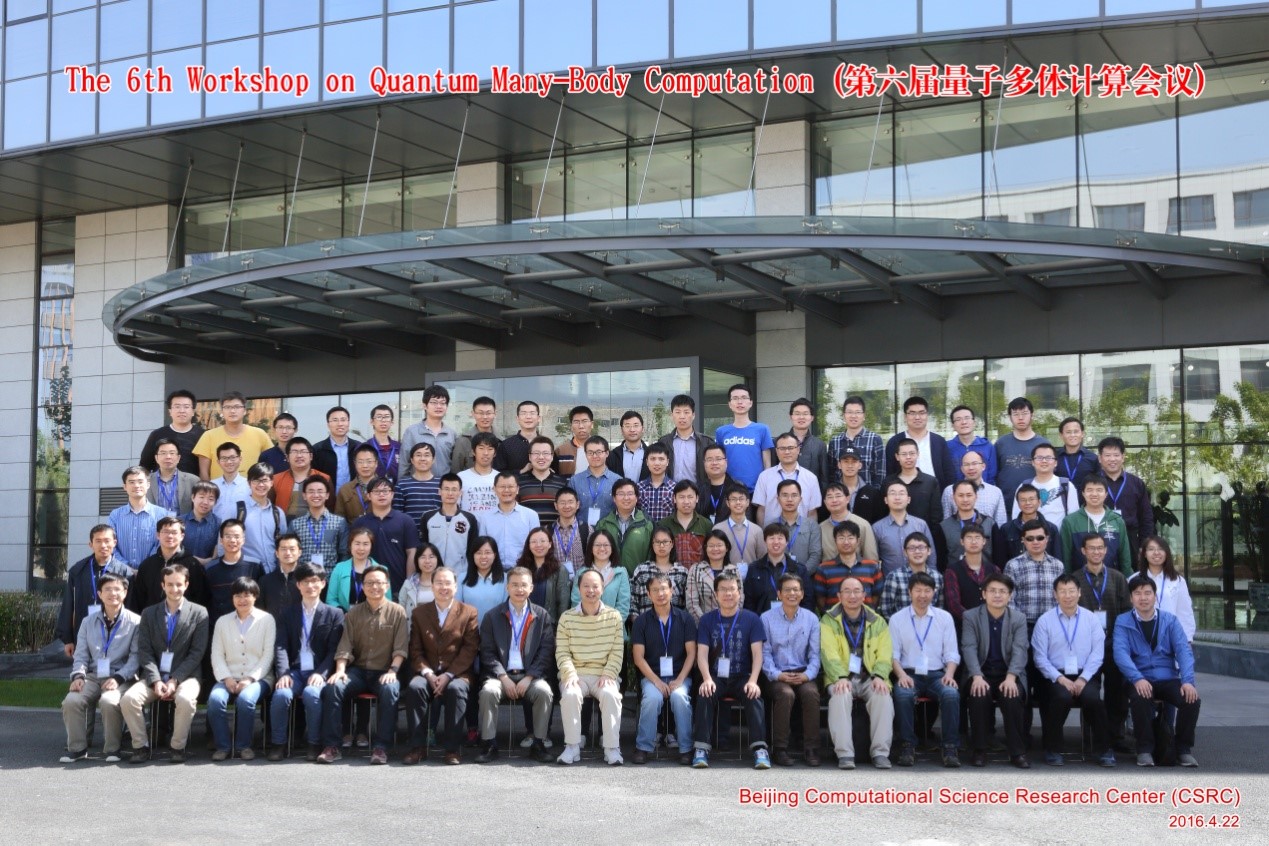The 6th workshop on Quantum Many-Body Computation was successfully held at Beijing Computational Science Research Center from April 21-23, 2016. This Workshop was organized by Beijing Computational Science Research Center, in collaboration with Chongqing University, Institute of Physics at Chinese Academy of Science, Shanghai Jiaotong University, University of Chinese Academy of Sciences, and Renmin University of China. There were around 120 participants from nearly 30 Universities and Institutes within mainland China, Hong Kong, and Taiwan.
Continuing the efforts of the five preceding meetings of this workshop series held at Chongqing University (2011), Lanzhou University (2012), Sun Yat-Sen University (2013), Hubei University (2014), and Shanghai Jiaotong University (2015), which attracted many experts, young researchers as well as graduate students. The workshop was aiming at bringing excellent researchers and students within the field together, exchange their recent research results, encourage discussions, and promote the development of new ideas and methods. The next workshop will be held at Huairou (Beijing) in 2017 by University of Chinese Academy of Sciences.
Study correlated quantum many-body systems is important for the understanding of Cuprates and Iron based superconductors. It is also the playground for discovering topological phases and topological phase transitions, which is often described as "beyond Ginzburg-Landau symmetry breaking paradigm". These new physics extends our current knowledge of quantum phases of matter, has becoming an inter-disciplinary research field between condensed-matter physics and quantum information theory. About half of the talks were related to the above topic, and the rest were about cold-atom systems, out-of-equilibrium systems and some classical statistical mechanic systems.
Major numerical methods that were covered within this workshop were Numerical Renormalization Group method; Tensor-Network based numerical methods, Quantum Monte Carlo methods and Variational Monte Carlo method. Among them, Tensor-Network based methods attracted a lot of attention due to their promising power, and have becoming the favorites of young students and scholars. In the meantime, a new development in Quantum Monte Carlo method to handle an even broader sign-free fermionic problem gave such a method a revival. Among 28 scientific talks and 2 lectures, 10 of them were related to Tensor-Network methods related, and 13 were Quantum Monte Carlo methods related.




